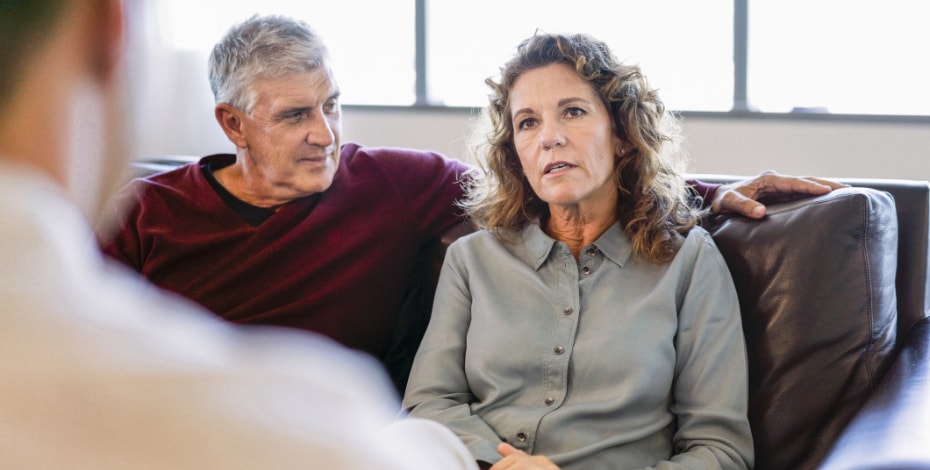
Create a safe space for open discussions

Good communication skills improve quality of life for people at or near the end of life, say palliative care researchers Susan Gravier and Katherine Pryde.
Even the most experienced clinicians, including physiotherapists, can feel under-prepared when it comes to initiating or engaging in conversations about end of life. The importance of good communication (palliaged.com.au) is recognised in the National Palliative Care Strategy 2018, and is also included in well-recognised standards for end-of-life care (Institute of Medicine 2015, National Institute for Health and Care Excellence 2011).
Anxiety is normal for both patients and clinicians during these discussions. Creating a safe environment for people to express themselves and feel heard provides significant comfort, can reduce anxiety and result in a sense of peacefulness, and can lead to less-invasive care and better adjustment to bereavement (Bernacki & Block 2014).
Dying is a normal part of life. Acknowledging the reality of dying and death can help people to prepare for the end of life in a meaningful way. Yet conversations about death and dying are difficult. These conversations may be distressing as the person may be very ill or rapidly deteriorating, scared, and asking questions that are difficult to answer.
Patients often want open and honest information. Sometimes it is difficult to have the answers to a person’s questions. Giving the person full attention and listening empathetically can provide an avenue for expression and reassurance. Giving time for silence can allow the person the space and time to connect with their thoughts and feelings. Families may require time to fully understand the issues and the best way forward, and to gather the courage to continue the discussions. Not knowing the answers to all questions is acceptable, particularly if, as an addition to empathetic listening, there is a willingness to guide the person to find helpful information and resources.
To meet the needs of individuals, their families and carers, good communication and listening skills are key to assisting people identify their needs and preferences (Bernacki & Block 2014). Involving individuals, their families and carers in the conversation can help align services with their needs and preferences and alleviate anxiety (Bernacki & Block 2014). It is important to remember that listening and acknowledging concerns can be of great comfort. Allowing time for silence is also a useful skill that can take practice. Important skills and practical examples are outlined in the table.
Evidence indicates that patients and their families place high-value on good communication that enables them to prepare for the end of life. Respectful and compassionate care acknowledges their values and allows them to be considered as a whole person—not as a sufferer of a certain disease—and helps maintain their dignity.
Building trust and confidence in clinicians allows people to stay as well as possible and engaged in their care (Masso et al 2016, caresearch.com.au). There is a growing body of evidence that describes the positive neurophysiological effects of touch and face- to-face interaction with trusted others. Trust and empathy, in particular, have a profound effect on the body’s creation and secretion of beneficial chemicals, which can help reduce depression and regulate anxiety (Kerr et al 2016).
Developing effective communication skills improves resilience in emotional situations. Using techniques such as active listening, acknowledging emotion and paraphrasing can assist clinicians to feel comfortable about participating in difficult situations with people with a life-limiting illness.
Communication skills develop with regular training and ongoing support. The investment made in developing and supporting these skills can enable clinicians to establish a person’s priorities and wishes, supporting them to make informed decisions. It also provides an opportunity to explore any anxieties or gaps in understanding of the situation, can reassure patients and their families, and alleviate or reduce anxiety and distress. And in all this, it is wise to remember it is often the little things that matter such as listening, offering to sit with someone for a period to talk about, or/with, the dying person or allowing time for silence.
Email inmotion@australian.physio for references.
Susan Gravier, a Research Associate at CareSearch, Flinders University, South Australia, trained as a physiotherapist in Adelaide and worked in regional Victoria, Canada and Hong Kong.
Katherine Pryde, APAM, qualified as a physiotherapist from La Trobe University in 2005. She is a member of the Victorian Committee of the APA Cancer, Palliative Care and Lymphoedema group.
© Copyright 2024 by Australian Physiotherapy Association. All rights reserved.





